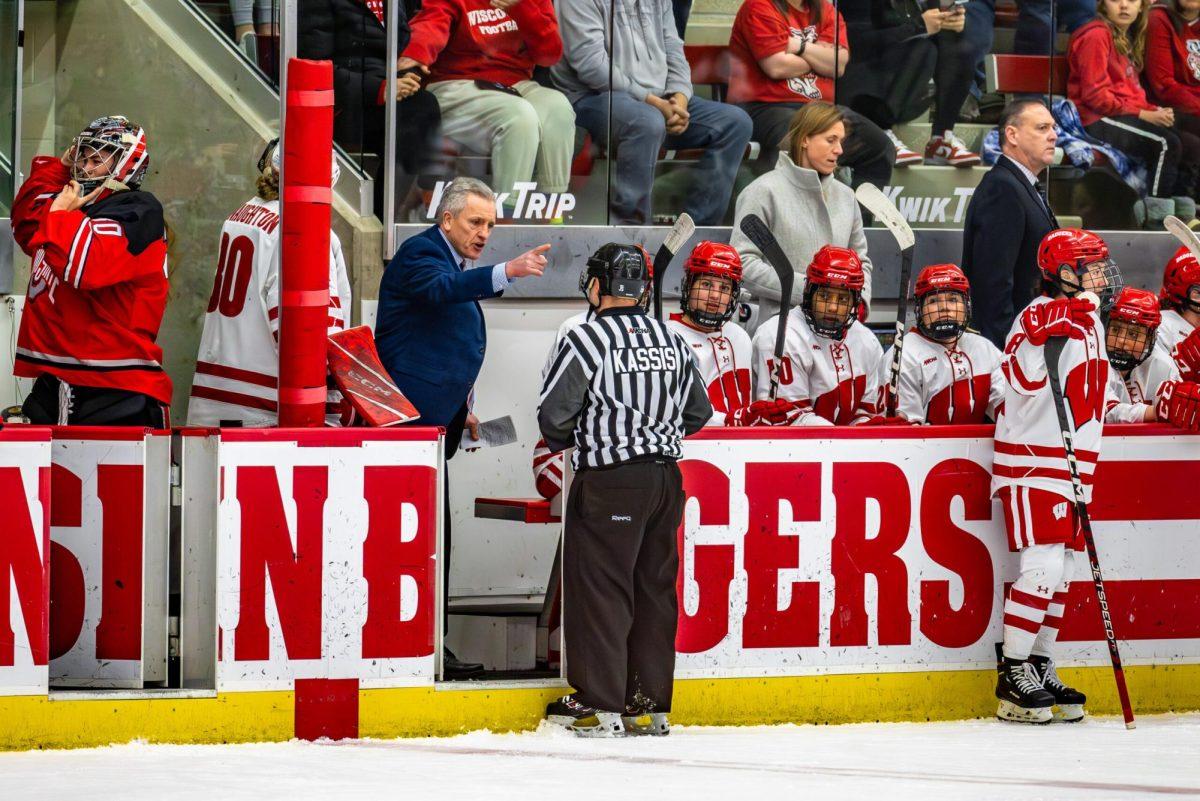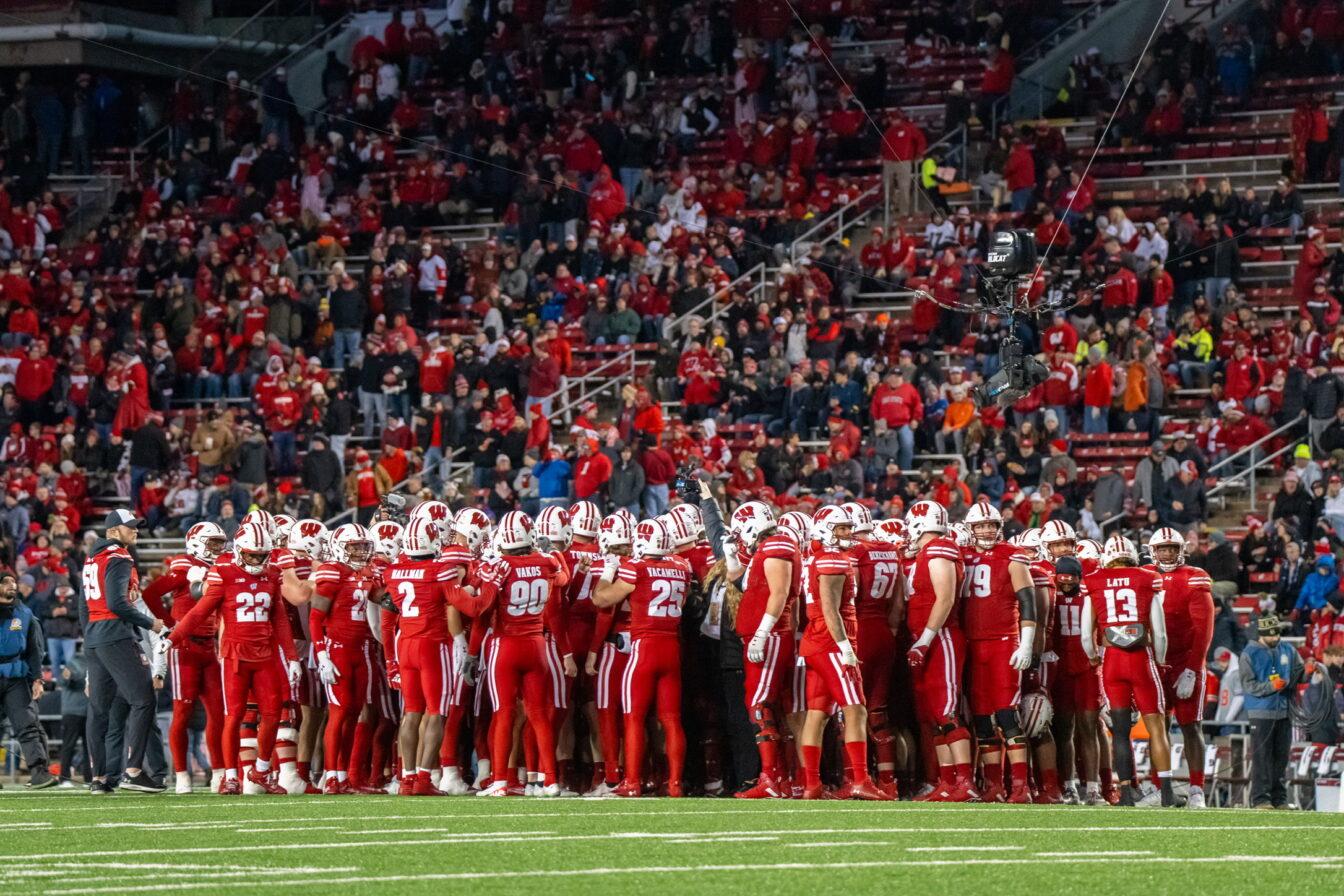The temperature is zero degrees Fahrenheit now in Waterville Valley, N.H. There, on a broad tail at on one end of a long ridge, sprawls the bare white face of a mountain pouring expansively into the basin that gives the area its name.
Skiing, for all its machismo and alacrity, is a sport tied inescapably to the outdoors. It stands much for awe of wondrous alpine beauty, embracing invasive temperatures as a kind of proof of life and natural existence.
This, UW’s ski team will tell you before it embarks to Waterville Valley to compete in the USCSA Nationals this week.
“When it’s cold in the winter, it’s nice to be out in the cold air. I don’t know what it is about it,” said Eric Charpentier, one of the team’s directors.
Of course, it is hard to notice the vast, tree-covered and jagged expanse of New Hampshire’s snow-lined countryside in just 60 seconds. That’s about how long it takes to barrel downhill through Waterville Valley’s slalom course for these college championships.
The giant slalom course takes closer to 90 seconds — if you don’t fall.
Last year at Bogus Basin, Idaho, Wisconsin was plagued by falls, finishing tied for 17th, second to last in the 19-team field. It was dead last in the slalom after only one of its skiers — Dakota Dux — completed the race without falling. Charpentier fell on his second run.
“This year we’ll have a better understanding of the field,” said Dux, now a junior. “We’re better prepared.”
Wisconsin is shooting for a top-10 finish, a goal in reach if the skiers perform the way coach Steve Cohen feels they are capable. He said last year’s disappointment came because the team peaked at the Midwest Regionals, several weeks before nationals. Now the team is improving every week, and Wisconsin’s No. 1 skier, Bill Schmitt, is as good as anyone in the country, Cohen said.
But alpine skiers know nothing is predictable.
“Skiing is a strange sport because you’re only given a minute to do everything,” Dux said. “When you’re going all out for 80 seconds, it is very hard.”
The length of the New Hampshire course will challenge schools like Wisconsin in particular. Teams from the West and East routinely practice 60- and 80-second runs on big mountains, Dux said, but in the Midwest, the largest hills for competition limit slalom and GS runs to 40 and 50 seconds.
As a result, the longer courses tax UW skiers’ physical endurance and concentration.
The top schools, such as 2001’s champion and this weekend’s favorite Sierra Nevada, own other advantages over Wisconsin too. With high-profile ski teams, those programs are able to attract greater funding and sponsors, which enables coaches to provide better equipment and training — and to recruit.
“I don’t know if there are English-speaking people on the team,” Dux said of Sierra Nevada.
The best ski colleges all feature European national-team skiers. Under United States College Ski Association guidelines, which operate like NCAA Division II regulations, this is perfectly legal. But Wisconsin is a club team made up mostly of local kids more serious about college than skiing.
Few college programs are varsity sports; at UW, the team is organized through the Hoofer Ski and Snowboard Club. Members pay dues. The coach makes a living running a manufacturing company. Some of the skiers are learning more than competing.
“We welcome everyone, from people who have never raced to Junior Olympians,” Charpentier said. “That’s what makes it fun.”
Instead of feeling bitterness about the gap between the top programs and themselves, the team gets excited to compete against world-class athletes, said Cohen, who raced for Wisconsin in college and remembers when there were sponsorships here.
“The nature of the club program gives people who are not as talented an opportunity to ski,” Cohen said. “To take a group of kids and get them molded into the successful team we have takes a lot of bonding-as-a-team stuff.”
That the university hardly knows the team exists does not matter. The fact that it can be so successful and still put education first at a top school is more special than winning nationals for a college like Sierra Nevada because it is unique, the coach said.
But that does not mean winning does not matter to Cohen or the team. That is the ski racer’s nature.
Charpentier said Bogus Basin was a great experience, the highest level of skiing he will ever achieve. Now he is an alternate, on the bubble for the five-man A-team.
It is a sport where hesitancy loses, where the only way to move is to lean forward in your boots, not back on your heels, where you must sacrifice some control to be competitive.
“You have to be confident, and you can’t just kind of ski,” Dux said. “There’s a difference between skiing and racing.”
“It’s adrenaline. It’s speed. It’s almost an addiction,” Charpentier said. “I don’t know how to explain it.”
It’s life, perhaps.













